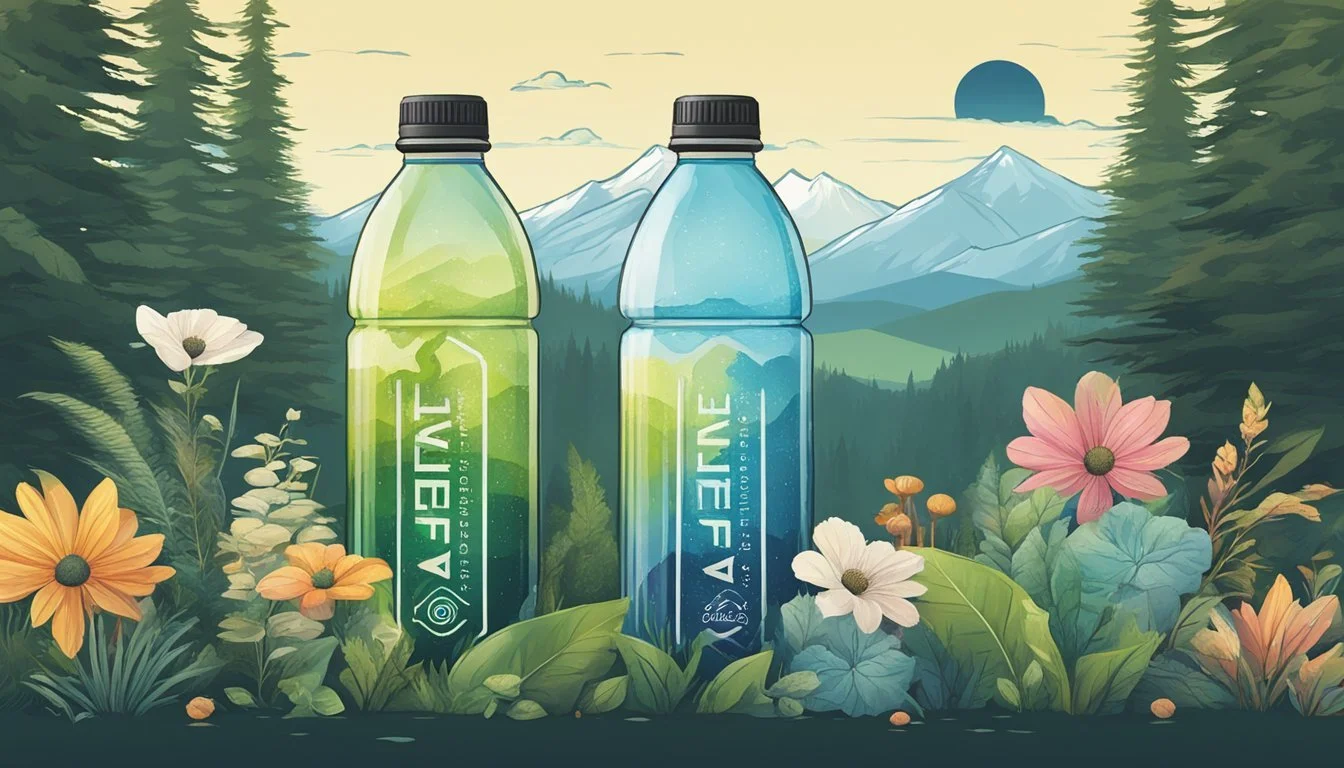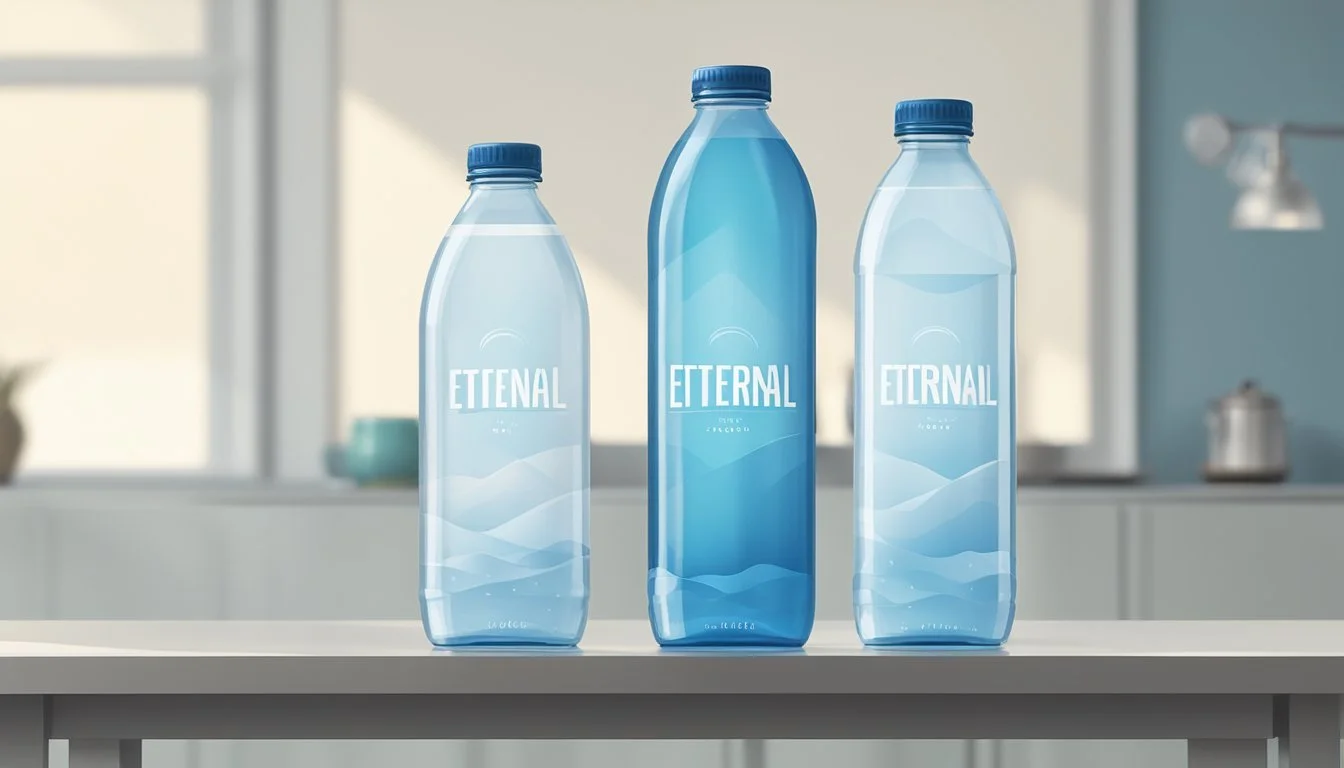Eternal vs. Defy
Which Bottled Water is Better for You?
In the world of bottled water, the choices can be overwhelming. Among the myriad options, Eternal and Defy stand out as two prominent brands. Eternal Water, known for its natural alkalinity and refreshing taste, boasts a pH balance that enthusiasts believe brings added health benefits. It is packaged conveniently for on-the-go hydration, making it a favorite for those seeking both quality and convenience.
On the other hand, Defy Water appeals to health-conscious individuals by offering a similarly high alkalinity and clean, crisp taste. Defy prides itself on advanced filtration techniques and the quality of its source, enhancing its appeal to a discerning market.
When comparing the two, many consumers find Eternal Water to be the superior choice due to its perceived natural quality and balanced flavor. Both brands offer unique advantages, but Eternal’s strong reputation and consistent performance make it a popular preference. This battle between bottled waters is more than just about quenching thirst—it’s about choosing the best hydration partner for your lifestyle.
Comparing Water Sources
Understanding the origins and treatment processes of bottled water is crucial for making an informed choice. This comparison examines the distinct characteristics of natural spring water and purified water processes.
Natural Spring Water
Eternal Naturally Alkaline Spring Water is sourced from protected natural springs. These springs are typically found in remote locations and are naturally filtered through layers of rock and soil, enhancing the water with minerals like calcium, magnesium, and silica.
By sourcing from natural springs, Eternal water maintains a naturally high pH level. This alkalinity is often highlighted for its potential health benefits. The water's journey through geological formations adds a unique mineral composition, setting it apart from processed alternatives. Consumers who prefer a direct connection to nature and minimal human intervention often favor this type of water.
Purified Water Processes
Defy water, in contrast, utilizes a purified water approach. This often starts with tap water, which undergoes rigorous purification methods such as reverse osmosis, distillation, and ultraviolet exposure. These processes remove impurities and contaminants, ensuring a high level of purity.
Reverse osmosis is notably effective, eliminating up to 99.9% of dissolved solids. Post-purification, essential electrolytes may be reintroduced to enhance taste and hydration benefits. This technique offers consistency and peace of mind regarding water quality.
Purified water processes achieve a high standard of purity and safety, making them attractive to those concerned about contaminants.
Health and Hydration
When comparing Eternal and Defy bottled water, it's crucial to focus on their impacts on health and hydration. Understanding the mineral content and hydration benefits can provide a clearer picture of their effectiveness.
Mineral Content and Health Benefits
Eternal Water contains naturally occurring electrolytes such as calcium, magnesium, and potassium. These minerals are beneficial for maintaining healthy bones and muscles.
Calcium aids in bone health, while magnesium supports muscle function and energy production. Potassium is essential for maintaining proper cell function and fluid balance in the body.
Defy Water, on the other hand, is known for its micro-filters and UV exposure which purify the water to 99.9% purity. It is then infused with additional electrolytes, enhancing its mineral content.
These added electrolytes can help replenish the body, especially during physical activity, providing similar health benefits as naturally occurring ones. The precise formulation in Defy ensures consistency in its health benefits.
Hydration and Body Performance
Eternal Water, with its naturally occurring electrolytes, offers effective hydration. These electrolytes help the body maintain its fluid balance, which is crucial for overall performance, especially during exercise. Proper hydration aids in regulating body temperature, lubricating joints, and carrying nutrients to cells.
Defy Water, thanks to its high pH level of 9.5 or higher, is often marketed as alkaline water, which some believe offers superior hydration compared to regular water. While scientific consensus on alkaline water's efficacy is still debated, many users anecdotally report feeling more hydrated and energized.
The combination of electrolytes and high pH may enhance the hydrating effect, potentially benefiting athletic performance and daily hydration needs. Choosing between the two may depend on personal preference and specific hydration goals.
Taste Profile
Eternal and Defy offer distinct taste experiences, largely influenced by their acidity, alkalinity, and overall flavor profile. Here is a closer look at the specific aspects that define the taste profile of each.
Acidity and Alkalinity
Eternal water is known for its natural alkalinity, with a higher pH level that contributes to a smoother, clean taste. Its alkaline properties are attributed to its natural source, aiming to neutralize body acidity.
Defy, on the other hand, offers a more balanced pH level. This neutral pH targets consumers who prefer a middle-ground option between acidic and highly alkaline waters, avoiding any extreme taste characteristics.
Brand pH Level Alkaline/Acidic Eternal ~8.0-9.0 Alkaline Defy ~7.0 Neutral
Flavor and Refreshment
Eternal's flavor profile is often described as smooth and crisp, thanks to its natural alkaline pH. The high pH not only affects acidity but also provides a unique, refreshing taste that stands out among other bottled waters.
Defy offers a clean and neutral flavor, making it suitable for those who prefer a subtler taste. It is refreshingly versatile, making it a solid option for everyday hydration without any noticeable tang or aftertaste.
These bottled waters target different preferences, with Eternal focusing on a distinct alkaline taste and Defy aiming for a more neutral, versatile flavor.
Water Quality and Safety
Ensuring the highest quality and safety standards in bottled water is crucial. Eternal and Defy each take significant measures to maintain water purity and adhere to safety regulations.
Filtration and Purity
Eternal water undergoes a comprehensive filtration process. This includes micro-filtration, reverse osmosis, and ultraviolet exposure. These steps ensure 99.9% purity. The water is then infused with electrolytes and ionized to create alkaline water with a pH of 9.5 or higher.
Defy also employs advanced filtration techniques. They use a mix of charcoal filters, UV treatment, and reverse osmosis to achieve a similar level of purity. Both brands emphasize their commitment to delivering high-quality water free from impurities.
Contaminants and Safety Standards
Both Eternal and Defy adhere to strict safety standards set by regulatory bodies like the EPA. Eternal sources its water from natural springs, maintaining transparency about its origin and treatment. This guarantees minimal exposure to contaminants.
Defy, on the other hand, follows rigorous quality checks and transparency about water sources. Both brands exceed the EPA’s regulations, reassuring consumers of their commitment to safety. Regular testing ensures that the water remains free from contaminants, offering peace of mind to consumers.
Packaging and Environmental Impact
Eternal and Defy are popular bottled water brands, each with distinct packaging strategies and environmental footprints. This section will contrast their use of plastic with a focus on BPA content and sustainability measures that impact their carbon footprints.
Plastic Use and BPA Content
Eternal water uses bottles made from PET plastic, known for being lightweight and sturdy. These bottles are BPA-free to ensure consumer health and safety. PET plastic is widely recyclable, reducing long-term plastic pollution.
Defy also opts for BPA-free PET plastic bottles. Defy's commitment to being eco-friendly includes featuring minimalistic labels and caps to reduce plastic use overall. While both brands prioritize consumer health by avoiding BPA, their approaches to plastic reduction vary slightly.
Sustainability and Carbon Footprint
Eternal has made efforts to improve its sustainability by incorporating recycled materials into its bottles. This move cuts down on waste and reduces the brand’s environmental impact. Additionally, Eternal supports various environmental initiatives aimed at reducing plastic pollution.
Defy emphasizes a smaller carbon footprint through optimized transportation logistics and the use of renewable energy in production facilities. They also participate in reforestation projects, which help offset the greenhouse gases emitted during production and distribution.
Both brands utilize measures to address environmental concerns, but their strategies include different focal points—Eternal on recycled materials and Defy on energy efficiencies and reforestation.
Brand Positioning and Market Choice
Eternal and Defy are two notable names in the bottled water industry, each with unique features that cater to different market segments. This section will explore their industry standing and alternatives available to consumers.
Industry Leaders and Alternatives
Eternal positions itself as a premium option, sourcing its naturally alkaline water from protected springs. This brand's distinct focus on natural mineral composition without additional processes appeals to health-conscious consumers seeking purity and natural taste.
Defy, on the other hand, is marketed toward active individuals and athletes. It emphasizes its filtered and ionized water, providing smooth-tasting hydration along with added electrolytes suitable for sports and active lifestyles. This brand targets consumers looking for enhanced performance and recovery.
Popular brands like Evian and Fiji also serve as notable alternatives. Evian offers naturally filtered spring water from the French Alps, while Fiji features artesian water with a soft, smooth profile. Personal preference often dictates consumer choice, balancing factors like taste, health benefits, convenience, and price.
Both Eternal and Defy carve out their niches, offering differentiated products tailored to specific consumer needs.
Conclusion
Eternal and Defy are both recognized for their unique qualities in the bottled water market.
Eternal Water offers pH values ranging from 7.8 to 8.2, promoting hydration and digestion improvement. It undergoes rigorous testing to ensure quality and consistency.
Defy Alkaline Water distinguishes itself with a higher pH level, often around 9.5 or higher. This makes it attractive for those seeking strongly alkaline water.
Pros of Eternal Water:
Natural spring source
Regular pH monitoring
Available in convenient sizes
Pros of Defy Water:
High pH level
Infused with electrolytes
Published purifying process
Price points for both brands may differ, which can influence the decision based on budget considerations.
Both Eternal and Defy provide health benefits through balanced pH levels and hydration support. The choice depends mainly on personal preferences for pH level and specific brand qualities.
More About Eternal
Eternal vs Icelandic Glacial: Which Bottled Water is Better?
Eternal vs Kirkland Signature: Which Bottled Water is Better?
Eternal vs Mountain Valley Spring Water: Which Bottled Water is Better?
Eternal vs Richard's Rainwater: Which Bottled Water is Better?
Eternal vs Whole Foods Italian Still Mineral water: Which Bottled Water is Better?




